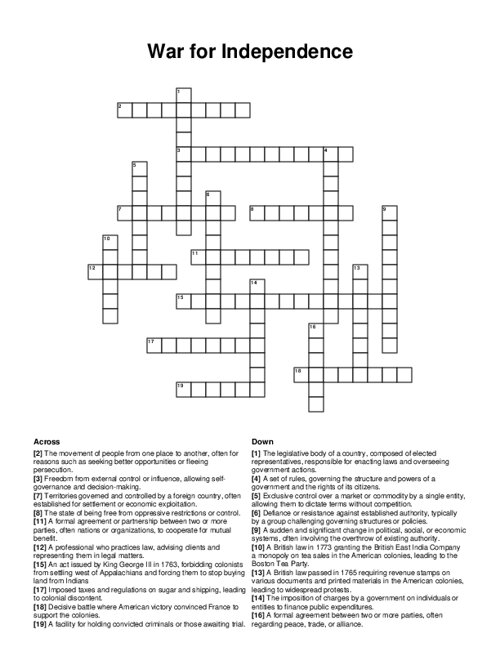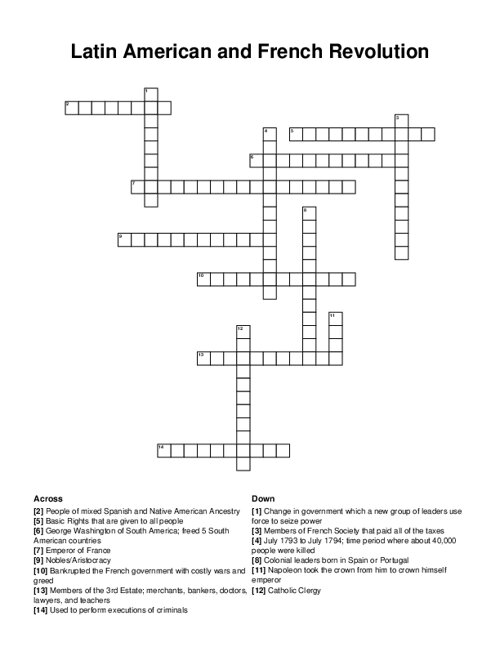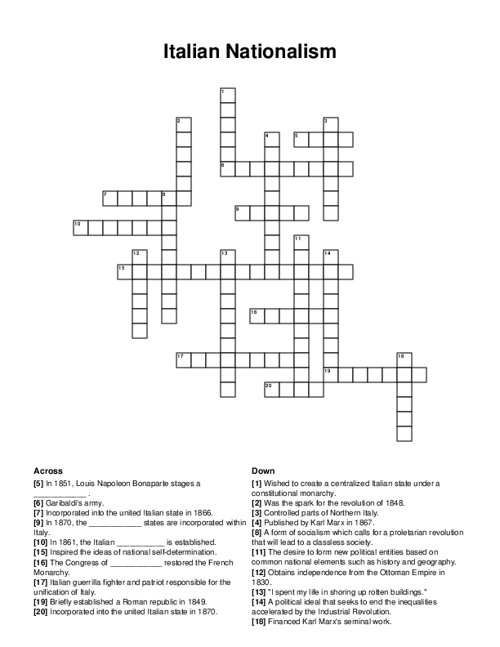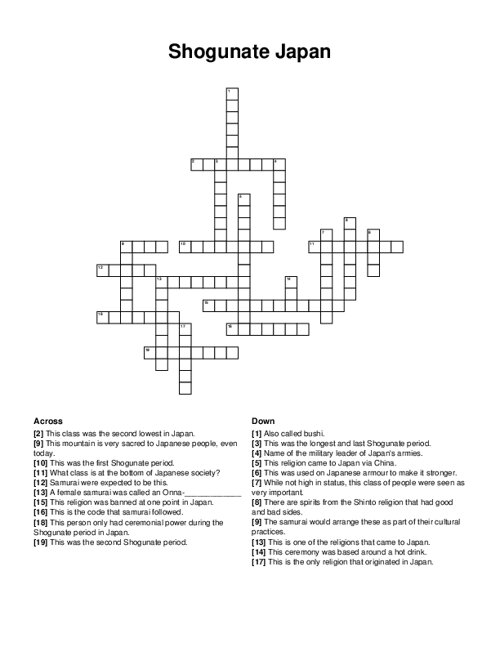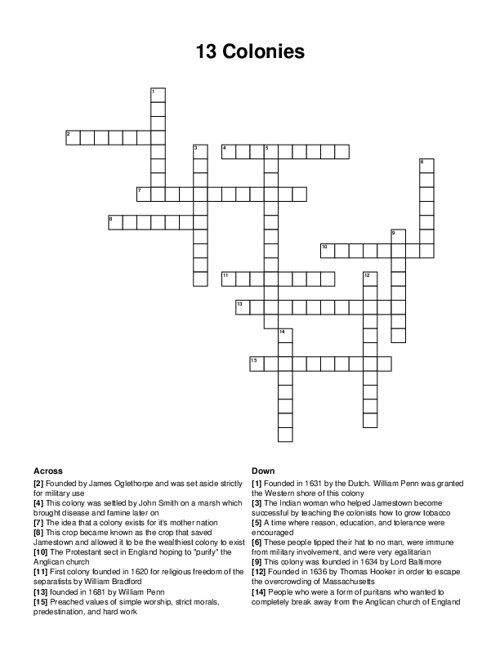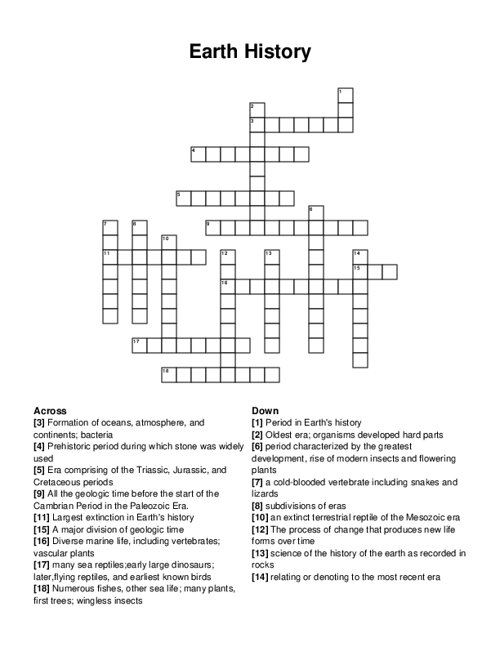War for Independence Crossword Puzzle
Download and print this War for Independence crossword puzzle.
Related puzzles:
QUESTIONS LIST:
- prison: a facility for holding convicted criminals or those awaiting trial.
- lawyer: a professional who practices law, advising clients and representing them in legal matters.
- colonies: territories governed and controlled by a foreign country, often established for settlement or economic exploitation.
- taxation: the imposition of charges by a government on individuals or entities to finance public expenditures.
- proclamation act: an act issued by king george iii in 1763, forbidding colonists from settling west of appalachians and forcing them to stop buying land from indians
- parliament: the legislative body of a country, composed of elected representatives, responsible for enacting laws and overseeing government actions.
- stamp act: a british law passed in 1765 requiring revenue stamps on various documents and printed materials in the american colonies, leading to widespread protests.
- revolution: a sudden and significant change in political, social, or economic systems, often involving the overthrow of existing authority.
- rebellion: defiance or resistance against established authority, typically by a group challenging governing structures or policies.
- alliance: a formal agreement or partnership between two or more parties, often nations or organizations, to cooperate for mutual benefit.
- constitution: a set of rules, governing the structure and powers of a government and the rights of its citizens.
- monopoly: exclusive control over a market or commodity by a single entity, allowing them to dictate terms without competition.
- tea act: a british law in 1773 granting the british east india company a monopoly on tea sales in the american colonies, leading to the boston tea party.
- independence: freedom from external control or influence, allowing self-governance and decision-making.
- sugar act: imposed taxes and regulations on sugar and shipping, leading to colonial discontent.
- migration: the movement of people from one place to another, often for reasons such as seeking better opportunities or fleeing persecution.
- saratoga: decisive battle where american victory convinced france to support the colonies.
- liberty: the state of being free from oppressive restrictions or control.
- treaty: a formal agreement between two or more parties, often regarding peace, trade, or alliance.
